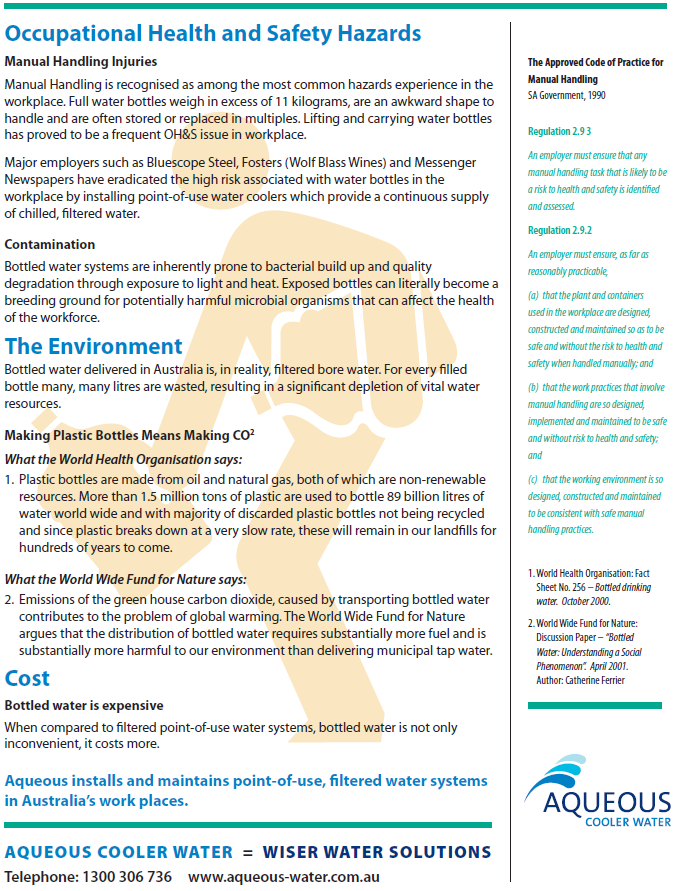The Impact of Bottled Water
There are many influences to consider when thinking of bottled water – occupational health and safety, manual handling, contamination, the environment, cost, etc.
Read more of this article to understand the big picture.
Occupational Health and Safety Standards
Manual Handling
Manual handling is recognised as among the most common hazards experienced in the workplace. Full water bottles weigh in excess of 11 kilograms, are an awkward shape to handle and are often stored or replaced in multiples. Lifting and carrying water bottles has proved to be a frequent OH&S issue in workplace.
Major employers such as Bluescope Steel, Fosters (Wolf Blass Wines) and Messenger Newspaper have eradicated the high risk associated with water bottles in the workplace by installing point-of-use water coolers which provide a continuous supply of chilled, filtered water.
Contamination
Bottled water systems are inherently prone to bacterial build up and quality degradation through exposure to light and heat. Exposed bottles can literally become a breeding grounf for potentially harmful microbial organisms that can affect the health of the workforce.
The Environment
Bottled water delivered in Australia is, in reality, filtered bore water. For every filled bottle many, many litres are wasted, resulting in a significant depletion of vital water resources.
Making Plastic Bottles Means Making CO2
What the World Health Organisation Says
- Plastic bottles are made from oil and natural gas, both of which are non-renewable resources. More than 1.5 million tons of plastic are used to bottle 89 billion litres of water worldwide and with majority of discarded plastic bottle not being recycled and since plastic breaks down at a very slow rate, these will remain in our landfills for hundreds of years to come.
- Emissions of the greenhouse carbon dioxide, cause by transporting bottled water contributes to the problem of global warming. The World Wide Fund for Nature argues that the distribution of bottled water requires substantially more fuel and is substantially more harmful to our environment than delivering municipal tap water.
What the World Wide Fund for Nature says
Cost
Bottled water is expensive
When compared to filtered point-of-use water systems, bottled water is not only inconvenient, it costs more.

